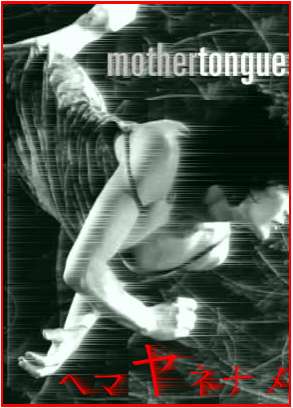|
agonia romana v3 |
Agonia - Ateliere Artistice | Reguli | Mission | Contact | Înscrie-te | ||||
|
|
| |||||
| Articol Comunităţi Concurs Eseu Multimedia Personale Poezie Presa Proză Citate Scenariu Special Tehnica Literara | ||||||
 |
|
|||||
|
agonia 
■ nu pot respira
Romanian Spell-Checker Contact |

- - -
- - - - - - - - - - - - - - - - - - - - - - 2004-02-18 | [Acest text ar trebui citit în english] |
The summary of this short novel can sounds like that: Amy Tan is a daughter of a Chinese emigrant, whose dream was coming to America, to escape the poverty and provide a better life for her daughter. The daughter, Amy Tan, becomes a writer, and now she’s describing her relation with her roots and heritage, through the language she’s speaking now, which is English. As a writer, the language is the creative tool. So, the way she’s using the language is fundamental. She’s sharing with us her story, how she gets to use the language in the way she is, and how did her mother’s imperfect English affected her.
The story is very meaningful and very universal, in my opinion. Because is not just about the language itself, but also about relationship with parents, with the cultural background and heritage. It is about leaving your home country and living abroad, and how to still keep the roots. It is about changing, but keeping, at the same time. It is about struggling and confrontation with a hostile (sometimes) environment. It is also about the generation gap, about being ashamed, at some point, of your parents, because they aren’t good enough for your status or image. And all those meanings might apply for so many of us. You don’t necessarily have to leave your country to experiment those feelings! It’s enough just to grow professionally and change the way of life! Suddenly, your parent’s house seems small and ugly, they don’t seem as smart as you thought they were supposed to be, they can get less and less of what you are saying, even if you are speaking the same mother language as they always did. This story is about losing and getting back, in the end. It is about coming home, in a way, after a long absence, and being proud again of what you are and what your heritage is. At first, when she was a child, Amy Tan was ashamed that her friends couldn’t understand what what her mother was saying. She felt bad also because they said her English is “broken”, “as if it were damaged and needed to be fixed”. She tended to believe at that time, as everybody else around, that “her English reflected the quality of what she had to say”. Because, to express something in a wrong or imperfect way, you must be wrong (imperfect and limited) in your thoughts! Her mother also teaches her to think in a different manner than the other children in school. This was the reason why she couldn’t react the same way to achievement tests! She grew up with the strong believe (suggested also by the teachers) that Asian students would be much better into engineering, accounting or anything else than an English – based profession. Only later, she discovers the richness inside that different system of thinking. Fortunately, because she “happens to be rebellious in nature and enjoy the challenge of disproving assumptions”, she starts not only to focus her study into English, but also began to write. And that was the moment she realized how important and meaningful was the fact she was actually able to use different kinds of English language, and start to appreciate her mother heritage for its real potential. This is the reason she starts writing about her mother: “I wanted to capture what language ability tests can never reveal: her intent, her passion, her imagery, the rhythms of her speech, and the nature of her thoughts”. And she became so much aware about that richness her mother actually gave her, that she decided her first reader and critic should be the mother itself. As she is mentioning in the end of the story: “ I knew I had succeeded where it counted when my mother finished reading my book and gave me her verdict: so easy to read.” I believe that each of us was Amy Tan, in some point his life. We do carry a hidden treasure inside of us, and sometimes we need to be far away from home, or to be separated from our roots somehow, in order to realize and appreciate what we really have.
|
||||||||
|
|
|
|
|
|
|
|
|||
| Casa Literaturii, poeziei şi culturii. Scrie şi savurează articole, eseuri, proză, poezie clasică şi concursuri. | |||||||||
 |
|
